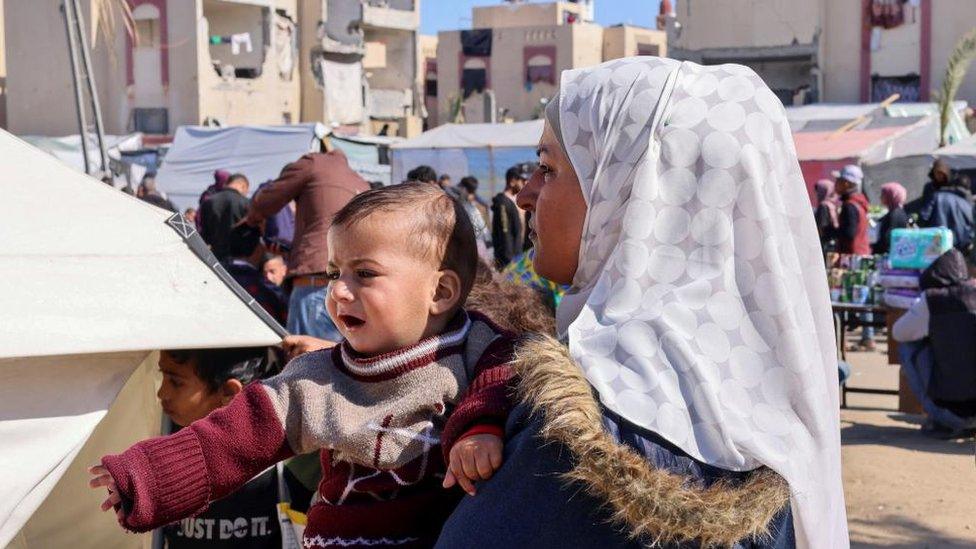Gaza war: What we know about Israel's Rafah hostage rescue raid
- Published
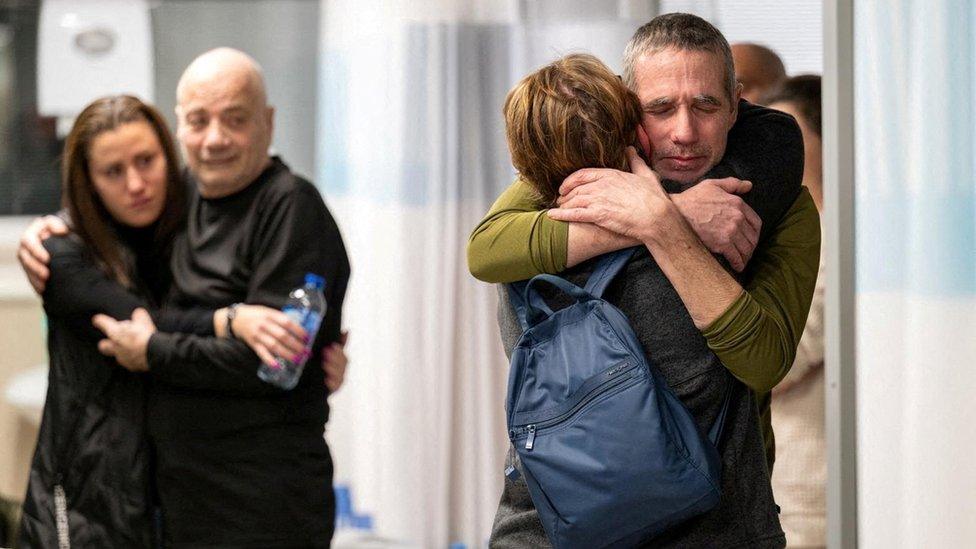
Louis Har (2nd L) and Fernando Marman (R) hug members of their families at a hospital in central Israel
Details have begun to emerge of an overnight Israeli military operation which freed two Israeli-Argentine hostages held captive by Hamas in the city of Rafah, in the southern Gaza Strip.
Israeli forces carried out intense strikes in the area during the raid, which Gaza's Hamas-run health ministry said killed dozens of people.
This is what we know so far about what happened.
Who are the freed hostages?
They have been named as Louis Har, 70, and Fernando Marman, 60, who were kidnapped from the kibbutz of Nir Yitzhak on 7 October.
Hundreds of Hamas gunmen infiltrated southern Israel that day, killing 1,200 people and taking another 250 back to Gaza as hostages. More than 28,100 people have been killed in Gaza since Israel launched a military campaign in response, according to the territory's health ministry.
Both of the freed hostages have been taken to the Sheba Medical Center in central Israel, where they were said to be in a good condition.
Videos and photos showed the men walking around and embracing members of their families at the hospital, external.
What does Israel's military say?
The first indications that something was taking place in Rafah were a series of intense Israeli strikes, external, which were reported shortly before 02:00 local time (00:00 GMT) on Monday and caused panic in a city that is sheltering the majority of the estimated 1.7 million Palestinians displaced by the war.
At 00:50, the Israel Defense Forces (IDF) confirmed that they had conducted strikes on "terror targets" in the Shaboura area of Rafah.
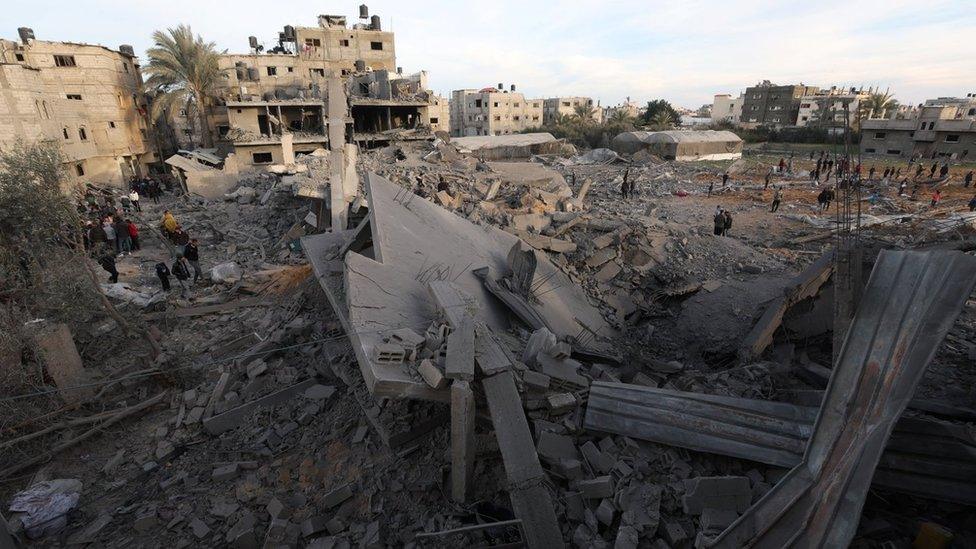
Palestinians reported that Israeli forces stormed a building in the Shaboura area, which was later targeted by Israeli strikes
One hour and 40 minutes later, the IDF put out a brief statement announcing the rescue of Louis Har and Fernando Marman, external in a joint operation with the Israel Police's Yamam special forces unit and the Shin Bet security service.
In the morning, IDF spokesman Rear Adm Daniel Hagari provided more details about what he described as a "complex rescue operation under fire", for which Israeli commandos had been preparing "for some time".
"In the early morning, at 01:49, the special forces breached into a building in the heart of Rafah," he told a news briefing, external. "On the second floor, Louis and Fernando were held by armed Hamas terrorists, who were present in the building along with terrorists who were in the adjacent buildings."
"From the moment of the breach and entry into the apartment, Yamam forces shielded Louis and Fernando with their bodies, initiating a daring battle and heavy exchanges of fire at several locations simultaneously, with many terrorists."
Adm Hagari added: "By 01:50, aerial fire was activated by the Israeli Air Force and Southern Command, to enable the force's disengagement and to strike Hamas terrorists in the area.
"At this stage, the forces extracted Louis and Fernando from the apartment and evacuated them under fire, accompanied by IDF forces who provided them protection in the Rafah area until they reached a safe zone."

A soldier was lightly wounded in the operation, according to Israeli media.
"I salute our brave fighters for the daring action that led to their release. Only continued military pressure, until total victory, will bring about the release of all of our hostages," Prime Minister Benjamin Netanyahu said in a statement.
During a week-long ceasefire in late November, 105 Israeli and foreign hostages were released by Hamas. Israel says 134 hostages are still being held, although about two dozen of those are presumed to be dead.
What do Palestinians say?
Rafah residents said there was gunfire from attack helicopters and naval vessels in the early hours of Monday. At least two mosques and more than a dozen houses were reported to have been hit.
Photos and videos taken in the Shaboura area in the morning showed a huge pile of rubble where multiple buildings were reportedly destroyed in Israeli strikes.
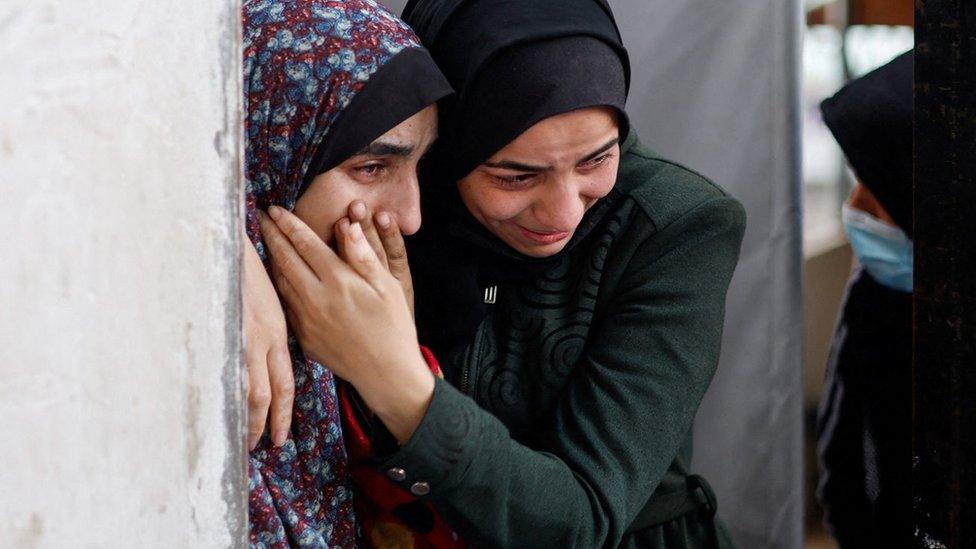
Gaza's Hamas-run health ministry said at least 67 people were killed by Israeli forces overnight in Rafah
Several large craters and the remains of plastic polytunnels could also be seen in adjoining agricultural land.
"We were asleep and then suddenly we saw heavy fire, lots of gunfire but we didn't know what was going on," resident Ziyad Seyam told Reuters news agency. "There were unimaginable strikes hitting the homes."
Another man at the scene, Abu Abdullah al-Qadi, said his cousin was among those who were killed in the Israeli strikes.
"They stormed this building and it appears that they freed prisoners - and then they bombed it," he told AFP news agency. "They bombed all the houses next to it."
Night-vision video footage of the rescue operation, external released by the IDF on Monday afternoon showed a number of commandos entering one of the buildings at the location, as well as an air strike on an adjacent building.
Other photos and videos taken 1.6km (one mile) to the south-west showed that the al-Huda mosque in the centre of the city's densely populated refugee camp was destroyed. A gaping hole could be seen extending down from the building's roof.
Khaled al-Taweel said he saw Apache and Cobra helicopters attacking targets in the area, as well as F-16 jets and drones.
"So much terror. Something you've never seen. Not in Hollywood in the US, not in Libya, not in Syria... Only in Rafah," he told Reuters news agency.
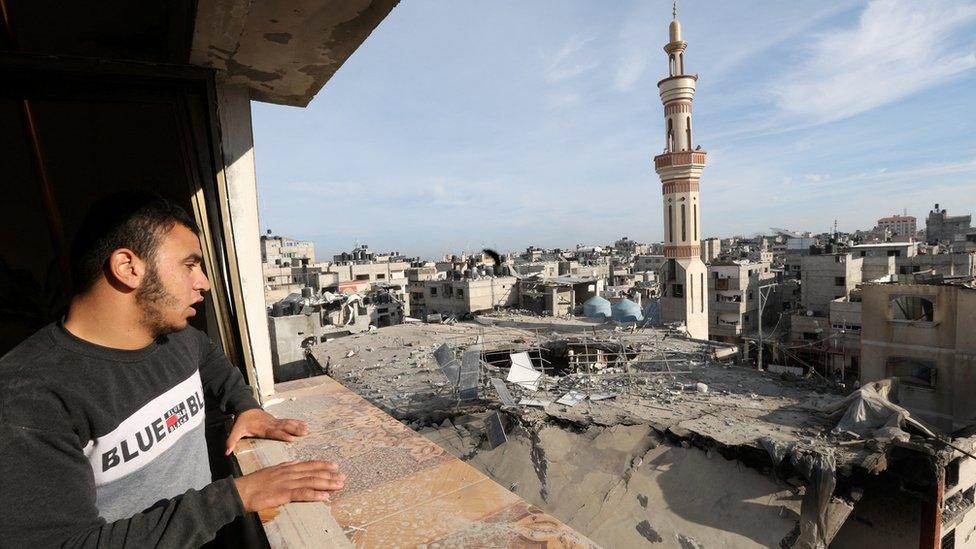
The al-Huda Mosque in Rafah's refugee camp was destroyed during the Israeli operation
At the nearby Kuwait Speciality Hospital, a Palestinian girl receiving treatment for shrapnel wounds to her neck said her father was killed when a camp for displaced people was struck.
"We were in the tent, me and all my family, when the bullets all came at us. My father went to see what's happening and said there were strikes, and a strike happened while he was talking," Mai al-Najjar told Reuters.
Recent satellite images of the location where the hostages were held showed small clusters of tents less than 100m (330ft) away.
A doctor at Kuwait Speciality Hospital said some of the casualties brought there after the strikes had suffered traumatic amputations of their legs and hands, and that they included children, women and the elderly. Footage from the facility also showed dead and wounded children.
Gaza's Hamas-run health ministry said in a statement on Monday morning that at least 67 people had been killed and that the number could rise as rescue and recovery operations continued.
Hamas described the attack as a continuation of Israel's "genocidal war" against the Palestinian people, while the Palestinian Authority's foreign ministry condemned what it called an Israeli "massacre" in Rafah.
Related topics
- Published12 February 2024
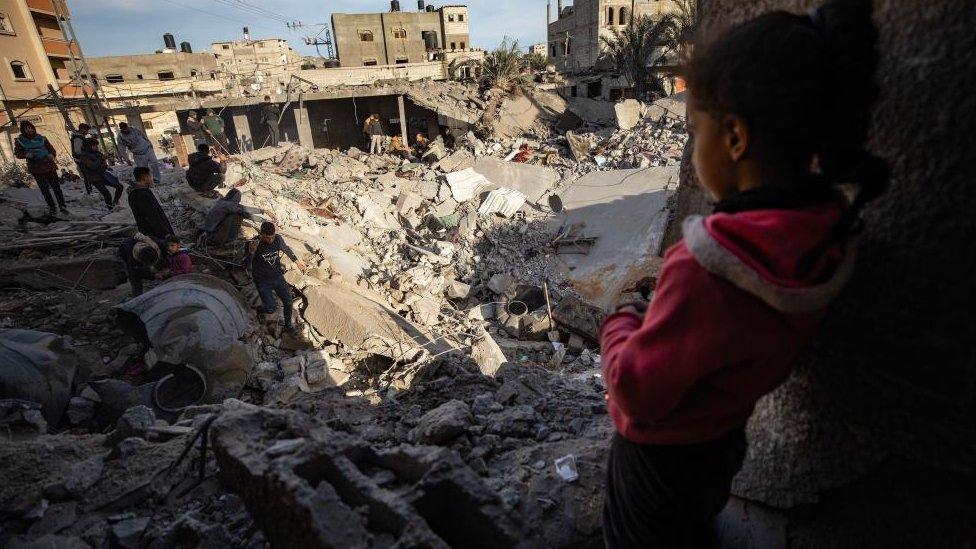
- Published12 February 2024
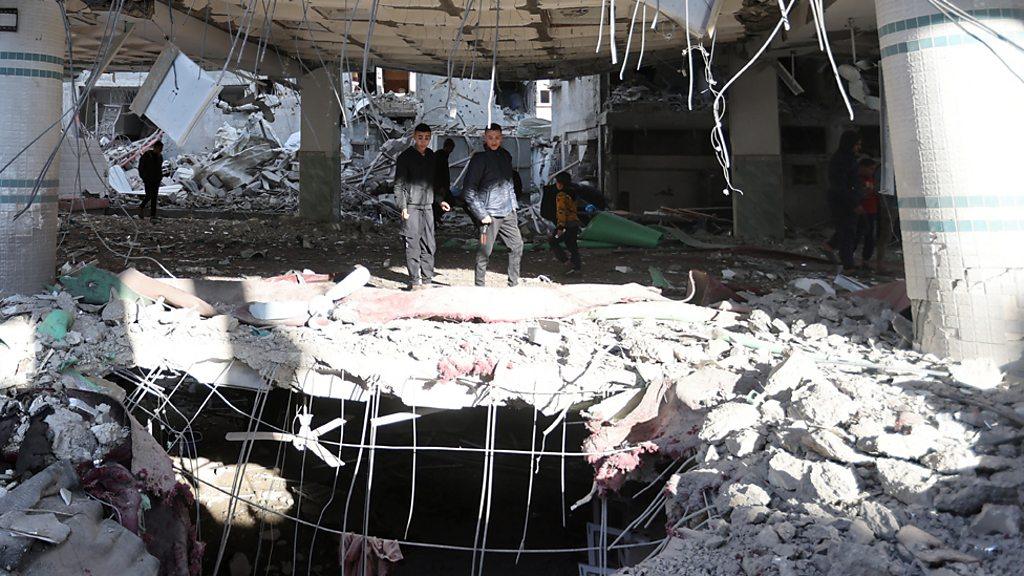
- Published11 February 2024
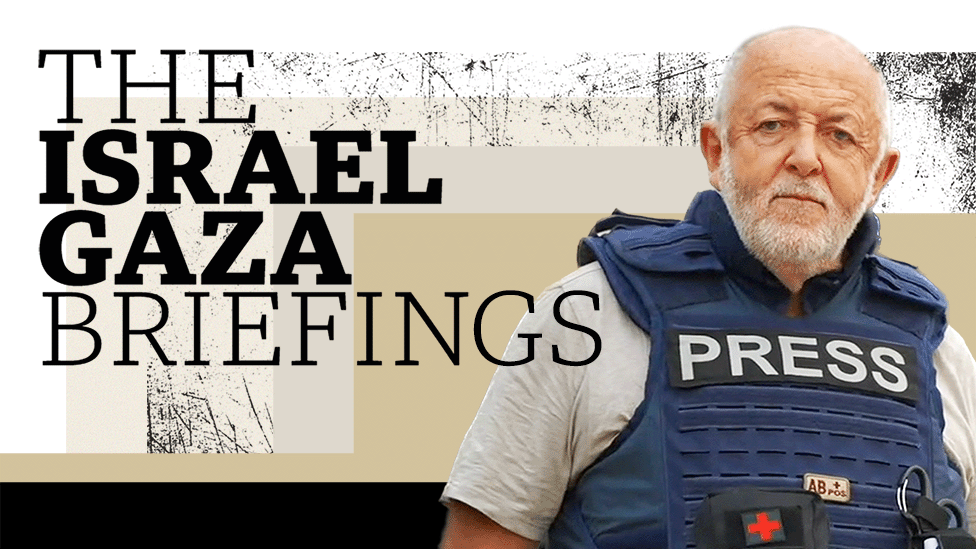
- Published11 February 2024
